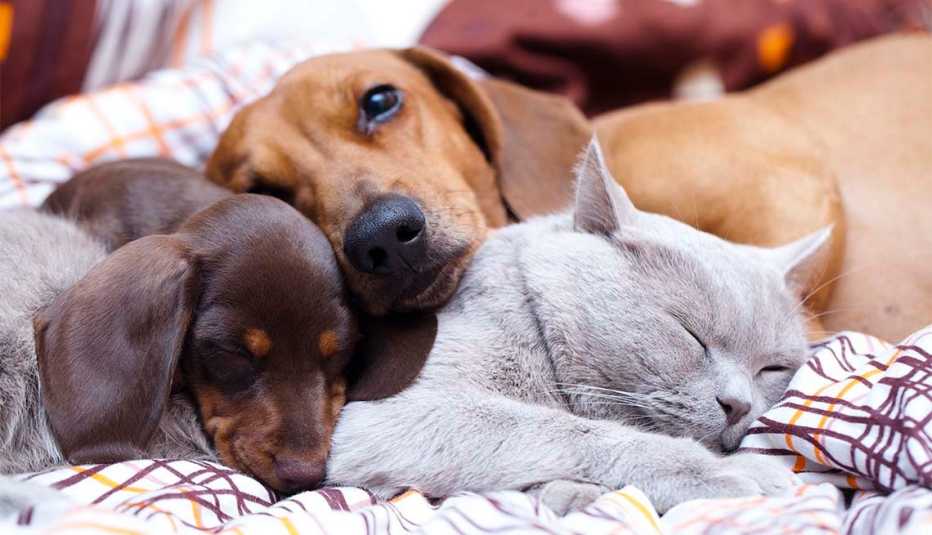AARP Hearing Center
Pets across the country are packing on more pounds than is healthy — something that has been easier to do since the pandemic began.
Take MabelDog, a 6-year-old Jack Russell-dachshund mix. She should weigh 11 pounds, maybe 12. But last year, when the pandemic turned owner Kathryn Howard’s world “into a two-bedroom apartment,” the weight steadily climbed — for both of them.
“It was emotional eating on our part,” says Howard, 59, from Irondequoit, New York, referring to herself and her 18-year-old son. “We were having more snacks, so we gave her more snacks. Then we got to a point where a portion of our meal would be set for her.”
MabelDog got up to 18 pounds.
She isn’t alone. A recent survey by dog technology company Fi, conducted in collaboration with Pumpkin Pet Insurance, found that 36 percent of the 1,000 dog owners surveyed said their canines had gained weight during the pandemic, despite getting more exercise than normal. More than 40 percent of owners admitted giving their pets extra treats or table scraps.
The new findings continue a trend that was already underway, according to the latest figures available from the Association for Pet Obesity Prevention. In 2018, an estimated 60 percent of cats and 56 percent of dogs in the United States were overweight or obese, the association found. Obesity, in fact, is the number one health threat pets face, because it affects nearly every biological system in their bodies. It can lead to diabetes, arthritis, high blood pressure, kidney failure, cancer and other conditions.
“What I see is the end of the spectrum that people don't like to talk about and hopefully never have to see,” says internationally recognized veterinarian Ernie Ward, founder of the association and author of three books, including Chow Hounds: Why Our Dogs Are Getting Fatter.
With owners like Howard working from home during the pandemic, people had more opportunities to share snacks with their furry friends.







































































